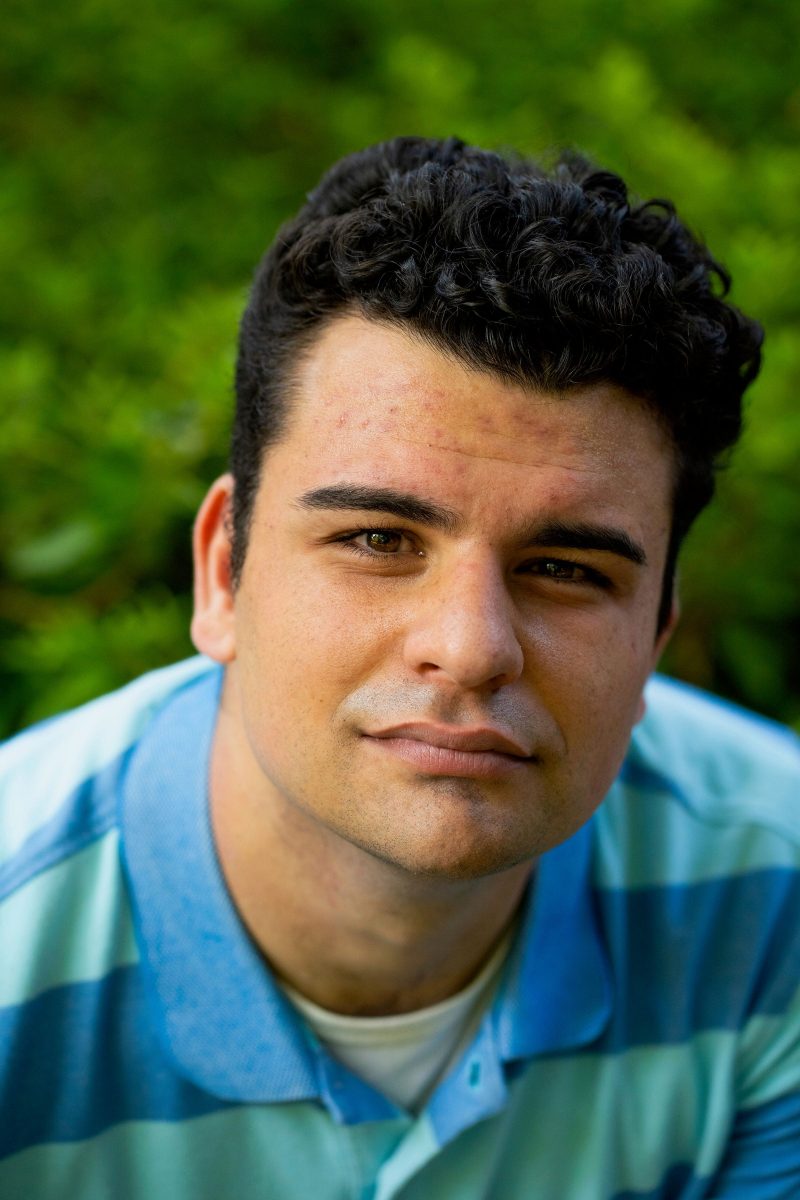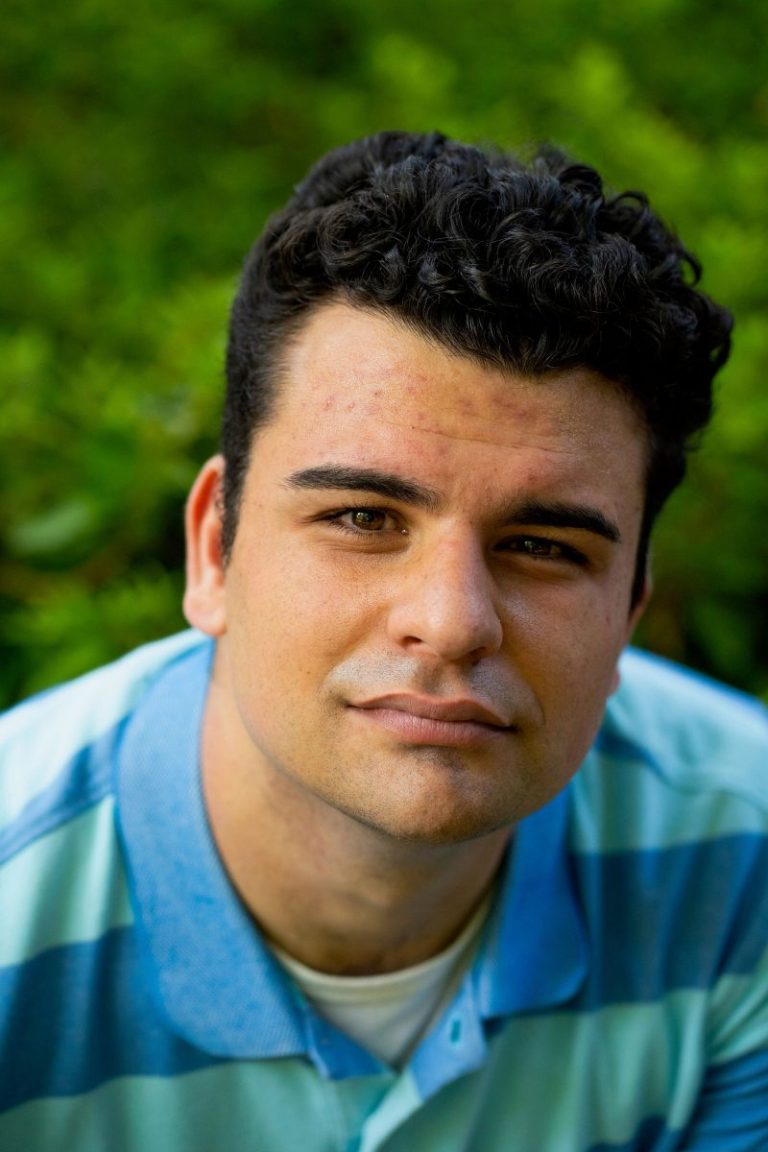
It was Game 5 in the Western Conference 2018 finals, and The Houston Rockets were looking to take the lead in a tied series with the Golden State Warriors. With just over a minute left in the game, Rockets guard Eric Gordon hit a clutch shot. Rockets win, 98-94.
When Gordon scored, the room erupted in Saul Malek’s suburban Houston home. The win was exhilarating for the then 20-year-old, a lifelong Rockets fan, but it was also terrifying. He joined his twin brother and dad, leaping up from the couch and cheering.
Unbeknownst to them, he was panicking.
He had bet $1,500 on the Warriors to win, and he now owed money he didn’t have to his bookie. It would be the first of many times he went into debt due to a sports gambling addiction that ruled his life for two years. At his lowest point, he recalls being down $25,000.
“My life was centered around gambling. If I wasn’t placing a bet, I was thinking of the next one,” Malek, now 27, says.
Following sports betting’s legalization in 2018, 67% of all college students are betting on games, according to a 2023 study from the NCAA. Gambling experts believe that number is likely even higher now, thanks to the prevalence of apps and a growing market that has captivated more young people. It’s a craze that has swept college campuses, and for some young people, it leads to complex, debilitating addictions. The problem, addiction experts say, is widely misunderstood.
For young men, sports and gambling are everywhere
For Malek, betting was always about invoking the same feeling he got the first time he won his middle school fantasy baseball league. Even as a sixth grader, the rush of proving his superior sports instincts — he drafted Matt Wieters to lead his 2009 fantasy league — was exhilarating.
After he started losing money, he would block the bookie’s number and move on to a new online sports book. Rock bottom came at 1 a.m. in the winter of 2019 during a school night at Trinity University. He waited for his girlfriend to fall asleep and drove two hours to the Lucky Eagle Casino near the border with Mexico, where he intended to make back the money.
It only took 15 minutes for him to blow through the $400 in his pocket. On the ride home, he tried to convince himself he didn’t have a problem.
Before sports betting was legalized, Heather Eshleman, the prevention manager at the Maryland Center of Excellence on Problem Gambling, got roughly three requests a year from educators requesting presentations on sports betting addiction. Now, she gets three per month from high school teachers and college professors.
In the last three years, the 1-800 number her organization runs has seen a spike in calls from 18 to 20 year olds, and calls from 21 to 25 year olds have tripled.
Teenagers’ executive functioning, abstract thinking and decision-making skills continue to develop through age 25. There’s a large deficit in young adults’ ability to deal with the highs and lows of gambling, according to Dr. Timothy Fong, the co-director of the UCLA Gambling Studies Program.
“A (teenager’s) brain doesn’t have impulse control. It doesn’t have the ability to recover from losses quickly,” says Fong. “It knows, I want money, I want excitement, I want things that my friends have. I want to prove that I’m super cool to my friends.”
Teens and young adults who gamble also often inaccurately conflate success in gambling with skill, according to Fong.
Philadelphia sports fan Rob Minnick, now 26 and in recovery, says it felt like a “no brainer” to make money betting on the games he was watching anyway with friends during high school. He was earning $8.38 an hour scooping ice cream, and the ability to win $100 on a parlay was “mind blowing.”
“I had an understanding of the odds of the games, yet I felt very confident that I would be the exception to the rule,” says Minnick, who goes by Rob One Day At A Time (ODAAT) on his YouTube channel, where he posts about his gambling recovery to 21,500 subscribers.
Jose Mendoza of Kansas City, Missouri, turned to sports betting at 23 to cope with his father’s death, a habit he hid from his family. On nights when his mother couldn’t sleep from the weight of her grief, he would lay in bed to comfort her while she cried. She never knew that he was often placing parlays on his phone while she drifted off.
“Of course I told my friends what I was winning, but they’re like, ‘Well how much did you put down, how much did you lose?’” Mendoza, who is now 28, says. “That’s always the kicker.”
‘Everybody has a betting workbook in their hand at all times, 24/7’
The 2018 Supreme Court ruling turned regulation of betting over to the states when it overturned the Professional and Amateur Sports Protection Act (PASPA), which prevented most states from authorizing betting. Today, sports betting is legal in 39 states and the District of Columbia.
Then came the gambling platforms’ pivot to sports betting – DraftKings, Fanatics, BetMGM and dozens like them, each with incentives for new customers. In the place of brick and mortar casinos and physical sportsbooks, anyone with a cell phone could bet, any time.
Thirty three states and the District of Columbia allow sports betting on mobile apps and websites.
While in-person sports betting decreased in 2024, mobile sports betting increased by around 50% and generated around $10.4 billion in revenue, according to the American Gaming Association.
“For years, I would see patients who struggle with physically going to the casino, driving 90 minutes or an hour to go,” says Fong. “A lot of these folks I see now, they’ve never set foot inside a casino. The only casino they’ve known is on their phone.”
Jordan, who started betting at 15 and asked that we withhold his last name due to fear of stigma when he searches for a job, says he thought sports betting was a habit he would grow out of. But when he went to a Division 1 college and joined greek life, that addiction snowballed.
Partying, alcohol and sports betting went hand-in-hand. He could bet on everything: The over-unders, props, who would hit the first home run.
“It’s unavoidable to hear other people talk about it,” Jordan, now 25 years old, says.
“Everybody has a betting workbook in their hand at all times, 24/7,’ added his dad, Austin.
Minnick says it’s so ubiquitous with the male college experience that it’s the new binge drinking. Even if some young adults aren’t talking about betting, they’re bound to hear about it while watching major games thanks to ads and betting odds being mentioned by announcers.
“It has become so normalized that if you were experiencing a gambling problem and you are a young man, you essentially cannot watch sports,” says former gambling addict Sam DeMello, now 38. “I think that that is the biggest fear that keeps a lot of men from doing something about it.”
Sports betting addiction faces stigma. Why?
Chemically, a gambling addiction functions the same way as a substance addiction, but a lot of people incorrectly see it as a moral failing or lack of self control, according to Cait Huble, of the National Council on Problem Gambling.
That misconception was the hardest thing for Jordan’s dad, Austin, to understand.
He and Jordan’s mother periodically bailed their son out of debt in high school. The conversation often went as follows: “Stop it. This is the last time. I don’t want to talk about it anymore.”
When the problem spiraled in college, they realized the issue ran deeper — and that they had enabled their son’s addiction without realizing it by bailing him out of debt.
“The perception is it’s 70-year-old guys who are horse betting, sitting in a (Gamblers Anonymous) meeting,” says Austin. “Sports betting, especially, has transcended this profile.”
DeMello says advocates in the space need to work on meeting boys where they’re at. He founded Evive, a digital therapy app specific to gambling, to fill a gap in age and technology. Based out of Oregon, health authorities in Oregon, Oklahoma, Massachusetts, Louisiana, Virginia and Nevada have partnered with the app.
“Every person addicted to gambling says, ‘If I hit the jackpot today, I make back all of the money that I lost over the last decade, and none of the harm is here,’” says DeMello. “To get somebody into abstinence, you have to kill that fantasy.”
Malek says the lies he told his parents hurt them ‘more than any amount of money could.’ He started going to Gamblers Anonymous meetings in 2018, but it wasn’t until July 2019 that he stopped gambling. Looking back, he wishes he had been more receptive to listening to recovered addicts. Malek says it’s a ‘steady process of changing’ that can’t be done solely on willpower.
‘I was so dead set on thinking that I could just figure things out, that I was smarter than any sort of addiction or or I could beat gambling,’ Malek says. ‘Thinking that I don’t have all the answers has been more helpful than having the answers.’
For anyone looking to curb their sports betting, Eshleman recommends starting with methods of self-exclusion, such as placing time and deposit limits on sports betting apps. Self-exclusion widgets like Gamban, BetBlocker and GamBlock can block access to accounts for a set period.
Minnick says young men can responsibly gamble, but should be conscious about their motivations. On his platform, he recommends that gamblers make sure they aren’t just gambling out of habit.
‘If you don’t have a reason anymore, that’s an alarm bell,’ Minnick says. ‘There were plenty of times over the course of the six years I was gambling when had I stopped and honestly asked myself, ‘why did you just do that?’ I would have reached the conclusion a lot sooner that I had a problem.’
Young adults struggling with responsible gambling can text or call National Problem Gambling Helpline 24 hours a day at 1-800-GAMBLER or find a Gamblers Anonymous meeting.
Rachel Hale’s role covering Youth Mental Health at USA TODAY is supported by a partnership with Pivotal Ventures and Journalism Funding Partners. Funders do not provide editorial input. Reach her at rhale@usatoday.com and @rachelleighhale on X.

